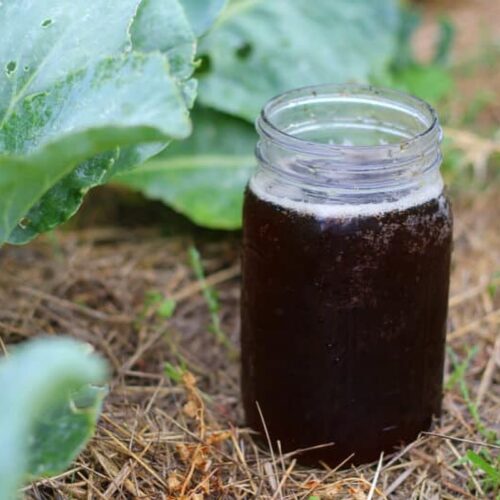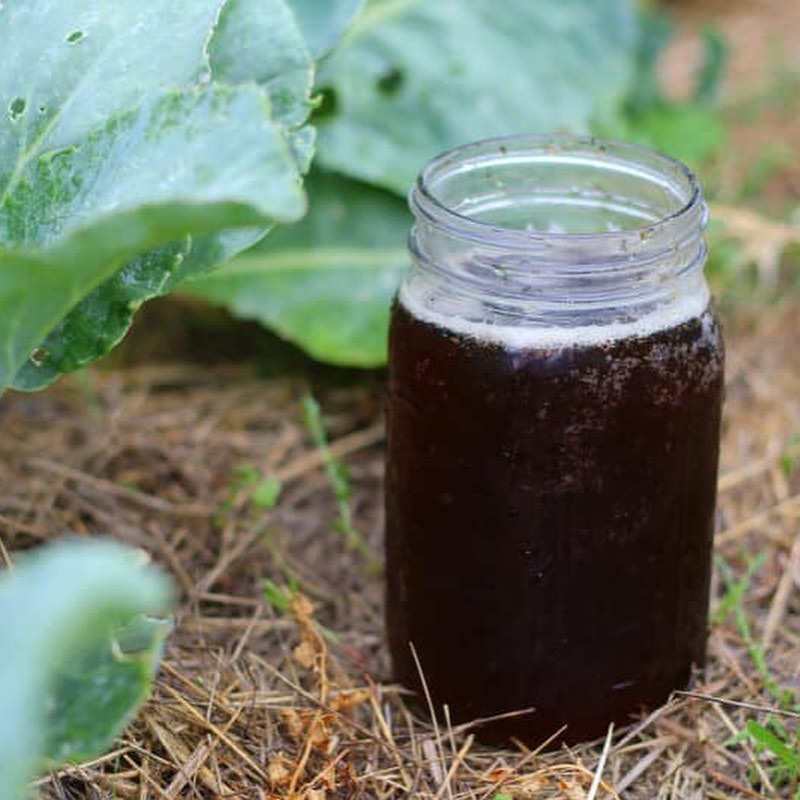Check out this post and learn these easy yet effective DIY Compost Tea Recipes for healthy plant growth in your garden.
Are you looking for simple and useful DIY Compost Tea Recipes then read this post with detailed information about compost teas, their benefits, and recipes.
What is Compost Tea?

Soaking or brewing compost in the water and straining the solution, the water brewed with the beneficial bacteria and nutrients make the perfect liquid garden compost. You can use it as a foliar spray or according to the need. This great healthy drink for plants is also known as compost beer as the process is nearer to fermentation. The brewed liquid compresses fungi, bacteria, protozoa, and nematodes in a simple liquid solution.
There are two ways of brewing; one is in the bucket of water, allowing it to sit for 2-3 days; this is the commonly known compost tea. The second one is aerated compost tea, which needs agitation and oxygen.
Benefits of Compost Tea
- Compost tea enhances the nutrients in the soil.
- Improve the population of predatory nematodes and mycorrhizal fungi; both of them protect the plants against a range of microorganisms.
- This liquid hydrator also helps the plant to grow fast, improve crops, reduce pests and diseases.
Brewing the Compost Tea
Brew the compost tea for at least 24-36 hours; a long time can develop bad bacterias like salmonella and E.coli. The inside microbes will use whole oxygen, which makes anaerobic conditions and enhances the chance of bacteria, molds, and viruses.
How to Use Compost Tea?
Dilute the tea in a 1:4 ratio or 4 cups to 1 gallon, apply the tea directly to the soil with a watering can or sprayer or as a foliar spray as this method is most beneficial in improving the health of the plants. Apply it at least bi-weekly.
Types of Compost Tea
Manure tea
It is a blend of many aged manures soaked in water; farmers commonly use this tea. This method is not good as it turns quite stinky.
Commercial Microbial Tea
This tea is used to fight particular plant issues; it’s safe as commercial microbial tea does not contain any bad bacteria.
Plant Tea
This process does not require soaking compost; the plant with nutritious characteristics can be soaked in the water to extract the nutrients. You can use plants like; nettle and comfrey for potassium and phosphorus for the soil.
Compost Leachate
There is very little difference between regular compost tea and compost leachate; both of them need compost to sit in water. However, leachate is made when water leaches over vermicompost.
DIY Compost Tea Recipes
Compost Tea Recipes For Encouraging Plant Growth
Recipe 1
Ingredients You’ll Need:
- 5-gallon bucket
- Non-chlorinated water or rainwater
- 1/2 cup of compost or worm castings
- 1/2-1/4 cup of food source for fungi or bacteria
Fill non-chlorinated water in the bucket, add compost, and other ingredients, allow it to sit for 24 hours. Use the tea within four hours so active microorganisms won’t begin to die.
Recipe 2
- 1 tablespoon unsulfered blackstrap molasses
- 1 tablespoon organic liquid kelp fertilizer
- 1 teaspoon organic liquid fish fertilizer
- 2 cups aerobic finished organic compost
This organic compost tea brewer will be ready in 1-3 days in a 5-gallon homemade compost tea brewer. This microbial inoculant improves the soil food web, control pest, and act as a broad-spectrum organic fertilizer, use it as a foliar spray to nourish your plants.
Recipe 3
Ingredients Required:
- Compost
- 5 Gallon Bucket
Fill the bucket with non-chlorinated water, dump the compost into a bucket, stir it, and let it sit for 24-48 hours. Stir it again and use it on plants after straining.
Recipe 4
Ingredients You’ll Need:
- 3-gallon non-chlorinated water
- 19-liter plastic bucket
- Compost
- 1-ounce unsulfured molasses
- Take dechlorinated tap water, rainwater, or non-chlorinated water in a 5-gallon bucket, and put the aerator from an aquarium pump or pond in the base of the bucket; connect this to an external pump, it will keep moving the tea during the brewing process.
- Fix one end of a flexible tube to the aerator at the bottom of the bucket and connect the other ends of the tube to the pump outside the bucket. Ensure that no extra water gets back into the pump.
- Fill halfway aged compost into the bucket. Add sufficient water to the mix and fill the bucket leaving at least 3-4 inches so you can stir the tea easily.
- Mix an ounce of unsulfured molasses and stir the tea. After mixing the ingredients, turn on the pump, which will give air to the aerator at the base of the bucket.
- Saturate the tea for 2-3 days; generally, compost tea takes 36-48 hours for brewing. But don’t brew the tea for more than three days as microbes will not have sufficient food for survival for an extended period.
- Stir the tea on a daily basis. Turn off the pump when brewing is completed and strain the tea.
- Use the tea in 36 hours as it has a short life.



